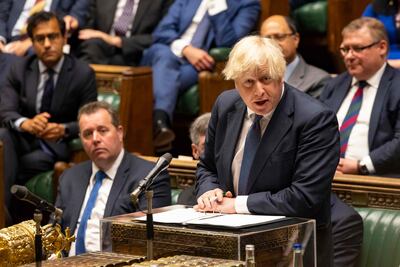The former speaker of the US House of Representatives Tip O’Neill famously observed that “all politics is local”. What follows is not an attempt to excuse the humanitarian catastrophe in Afghanistan, but to explain why domestic politics in the US and UK is the key to understanding why it is happening and the implications for all of us.
When Barack Obama was nominated as Democratic presidential candidate in 2008, I attended his party convention in Colorado. Waiting for the big evening event, I took a drive and found myself lost in a low-income Denver suburb. I stopped to ask for directions in what turned out to be a funeral parlour. The rooms were full of American flags and pictures of US service personnel in military uniforms, along with special deals of reduced prices on coffins for US troops who died in Iraq and Afghanistan.
Mr Obama inherited those two thankless foreign wars. His vice president, Joe Biden, spent years on the Senate Foreign Relations Committee and became increasingly sceptical about what he and former US president Donald Trump (in surprising agreement) treated as “forever wars”. But as we have seen, Mr Biden’s first major strategic decision as president – to leave Afghanistan – has been condemned by many of America’s friends and allies. US casualties in Afghanistan in recent months were low.
Former British prime minister Tony Blair was scathing: “We didn't need to do it. We chose to do it. We did it in obedience to an imbecilic political slogan about ending ‘the forever wars’.” Mr Biden’s approval rating has dipped below 50 per cent.
But because “all politics is local”, Mr Biden, faced with Mr Trump’s existing commitment to withdraw US troops, could only reverse that policy by owning the renewed commitment, in a struggle that he clearly judged had no obvious successful end point, ever. Voters would think “how many more American men and women would end up in those specially discounted bargain coffins?” Mr Blair again got it right: “We did it because our politics seemed to demand it. And that's the worry of our allies and the source of rejoicing in those who wish us ill. They think Western politics is broken.”
In Britain, Prime Minister Boris Johnson is also discovering that “all politics is local”. Afghanistan has again shown his government as missing in action. Mr Johnson himself, Foreign Secretary Dominic Raab and three top civil servants were on holiday when the crisis exploded. Mr Raab claimed to have delegated a phone call to a junior colleague to contact the Afghan government. The call didn’t happen. Mr Johnson’s own party colleagues publicly attacked his failures. Theresa May, his predecessor, pointed out the hollowness of the Johnson slogan of creating some fantasy “Global Britain”. She asked where Global Britain was on the streets of Kabul. Nowhere, apparently.
Yet Mr Biden may ride out his political storm. He can survive being condemned in the US media if leaving a thankless war resonates with Middle America. But Mr Johnson may well be further and permanently damaged. The debacle has exposed the key strategic failure of post-Brexit Britain. A thinking British leader such as Mr Blair understands that American presidents (not just Mr Trump) inevitably put America first.
US allies are often informed by the White House about major strategic decisions, rather than consulted. Moreover, Mr Johnson’s Brexit Britain is less useful as a US ally because the UK has lost influence in Europe. Any “Global Britain” role in future will depend upon rebuilding damaged relations with France and Germany in particular, and Mr Johnson is incapable of this. He simply is not trusted, in Berlin or Paris or Washington or even by some of his own Conservative MPs.
The former CIA counterterrorism chief for South and South-West Asia, Douglas London, this week wrote that “the decision Trump made, and Biden ratified, to rapidly withdraw US forces came despite warnings projecting the outcome we’re now witnessing". What is significant here is not that Mr London questions the decision to leave, but rather Mr Biden’s key mistake in setting a deadline of the 9/11 anniversary to leave so quickly and brutally. If there really were intelligence “warnings” of the rapid collapse of the Afghan government, British intelligence undoubtedly would know this, too.
The short-term question for both Washington and Westminster is therefore why they were surprised by a predictable crisis. The longer-term and much more important question is about the deep politicisation of foreign and security policy on both sides of the Atlantic. This makes both the US and UK seem less reliable allies.
Mr Blair again sees the British dilemma: “For Britain, out of Europe and suffering the end of the Afghanistan mission by our greatest ally with little or no consultation, we have serious reflection to do… we are at risk of relegation to the second division of global powers.” The “local politics” question is whether Mr Biden’s decision to rush through withdrawal from Afghanistan despite the predictable humanitarian cost means he can realistically claim to voters by the anniversary of September 11 that a “forever war” is forever over. I doubt it.
What are the influencer academy modules?
- Mastery of audio-visual content creation.
- Cinematography, shots and movement.
- All aspects of post-production.
- Emerging technologies and VFX with AI and CGI.
- Understanding of marketing objectives and audience engagement.
- Tourism industry knowledge.
- Professional ethics.
What can victims do?
Always use only regulated platforms
Stop all transactions and communication on suspicion
Save all evidence (screenshots, chat logs, transaction IDs)
Report to local authorities
Warn others to prevent further harm
Courtesy: Crystal Intelligence
The specs: 2018 Nissan 370Z Nismo
The specs: 2018 Nissan 370Z Nismo
Price, base / as tested: Dh182,178
Engine: 3.7-litre V6
Power: 350hp @ 7,400rpm
Torque: 374Nm @ 5,200rpm
Transmission: Seven-speed automatic
Fuel consumption, combined: 10.5L / 100km
SHAITTAN
%3Cp%3E%3Cstrong%3EDirector%3A%20%3C%2Fstrong%3EVikas%20Bahl%3Cbr%3E%3Cstrong%3EStarring%3A%20%3C%2Fstrong%3EAjay%20Devgn%2C%20R.%20Madhavan%2C%20Jyothika%2C%20Janaki%20Bodiwala%3Cbr%3E%3Cstrong%3ERating%3A%20%3C%2Fstrong%3E3%2F5%3C%2Fp%3E%0A
EGYPT SQUAD
Goalkeepers: Ahmed El Shennawy, Mohamed El Shennawy, Mohamed Abou-Gabal, Mahmoud Abdel Rehem "Genesh"
Defenders: Ahmed Elmohamady, Ahmed Hegazi, Omar Gaber, Ali Gazal, Ayman Ahsraf, Mahmoud Hamdy, Baher Elmohamady, Ahmed Ayman Mansour, Mahmoud Alaa, Ahmed Abou-Elfotouh
Midfielders: Walid Soliman, Abdallah El Said, Mohamed Elneny, Tarek Hamed, Mahmoud “Trezeguet” Hassan, Amr Warda, Nabil Emad
Forwards: Ahmed Ali, Mohamed Salah, Marwan Mohsen, Ahmed "Kouka" Hassan.
Profile of Bitex UAE
Date of launch: November 2018
Founder: Monark Modi
Based: Business Bay, Dubai
Sector: Financial services
Size: Eight employees
Investors: Self-funded to date with $1m of personal savings
Singham Again
Director: Rohit Shetty
Stars: Ajay Devgn, Kareena Kapoor Khan, Ranveer Singh, Akshay Kumar, Tiger Shroff, Deepika Padukone
Rating: 3/5
Labour dispute
The insured employee may still file an ILOE claim even if a labour dispute is ongoing post termination, but the insurer may suspend or reject payment, until the courts resolve the dispute, especially if the reason for termination is contested. The outcome of the labour court proceedings can directly affect eligibility.
- Abdullah Ishnaneh, Partner, BSA Law
What is graphene?
Graphene is a single layer of carbon atoms arranged like honeycomb.
It was discovered in 2004, when Russian-born Manchester scientists Andrei Geim and Kostya Novoselov were "playing about" with sticky tape and graphite - the material used as "lead" in pencils.
Placing the tape on the graphite and peeling it, they managed to rip off thin flakes of carbon. In the beginning they got flakes consisting of many layers of graphene. But as they repeated the process many times, the flakes got thinner.
By separating the graphite fragments repeatedly, they managed to create flakes that were just one atom thick. Their experiment had led to graphene being isolated for the very first time.
At the time, many believed it was impossible for such thin crystalline materials to be stable. But examined under a microscope, the material remained stable, and when tested was found to have incredible properties.
It is many times times stronger than steel, yet incredibly lightweight and flexible. It is electrically and thermally conductive but also transparent. The world's first 2D material, it is one million times thinner than the diameter of a single human hair.
But the 'sticky tape' method would not work on an industrial scale. Since then, scientists have been working on manufacturing graphene, to make use of its incredible properties.
In 2010, Geim and Novoselov were awarded the Nobel Prize for Physics. Their discovery meant physicists could study a new class of two-dimensional materials with unique properties.
SPECS
%3Cp%3E%3Cstrong%3EEngine%3A%20%3C%2Fstrong%3E2-litre%204-cylinder%20petrol%20(V%20Class)%3B%20electric%20motor%20with%2060kW%20or%2090kW%20powerpack%20(EQV)%0D%3Cbr%3E%3Cstrong%3EPower%3A%3C%2Fstrong%3E%20233hp%20(V%20Class%2C%20best%20option)%3B%20204hp%20(EQV%2C%20best%20option)%0D%3Cbr%3E%3Cstrong%3ETorque%3A%3C%2Fstrong%3E%20350Nm%20(V%20Class%2C%20best%20option)%3B%20TBA%20(EQV)%0D%3Cbr%3E%3Cstrong%3EOn%20sale%3A%20%3C%2Fstrong%3EMid-2024%0D%3Cbr%3E%3Cstrong%3EPrice%3A%20%3C%2Fstrong%3ETBA%0D%3C%2Fp%3E%0A
Mercer, the investment consulting arm of US services company Marsh & McLennan, expects its wealth division to at least double its assets under management (AUM) in the Middle East as wealth in the region continues to grow despite economic headwinds, a company official said.
Mercer Wealth, which globally has $160 billion in AUM, plans to boost its AUM in the region to $2-$3bn in the next 2-3 years from the present $1bn, said Yasir AbuShaban, a Dubai-based principal with Mercer Wealth.
“Within the next two to three years, we are looking at reaching $2 to $3 billion as a conservative estimate and we do see an opportunity to do so,” said Mr AbuShaban.
Mercer does not directly make investments, but allocates clients’ money they have discretion to, to professional asset managers. They also provide advice to clients.
“We have buying power. We can negotiate on their (client’s) behalf with asset managers to provide them lower fees than they otherwise would have to get on their own,” he added.
Mercer Wealth’s clients include sovereign wealth funds, family offices, and insurance companies among others.
From its office in Dubai, Mercer also looks after Africa, India and Turkey, where they also see opportunity for growth.
Wealth creation in Middle East and Africa (MEA) grew 8.5 per cent to $8.1 trillion last year from $7.5tn in 2015, higher than last year’s global average of 6 per cent and the second-highest growth in a region after Asia-Pacific which grew 9.9 per cent, according to consultancy Boston Consulting Group (BCG). In the region, where wealth grew just 1.9 per cent in 2015 compared with 2014, a pickup in oil prices has helped in wealth generation.
BCG is forecasting MEA wealth will rise to $12tn by 2021, growing at an annual average of 8 per cent.
Drivers of wealth generation in the region will be split evenly between new wealth creation and growth of performance of existing assets, according to BCG.
Another general trend in the region is clients’ looking for a comprehensive approach to investing, according to Mr AbuShaban.
“Institutional investors or some of the families are seeing a slowdown in the available capital they have to invest and in that sense they are looking at optimizing the way they manage their portfolios and making sure they are not investing haphazardly and different parts of their investment are working together,” said Mr AbuShaban.
Some clients also have a higher appetite for risk, given the low interest-rate environment that does not provide enough yield for some institutional investors. These clients are keen to invest in illiquid assets, such as private equity and infrastructure.
“What we have seen is a desire for higher returns in what has been a low-return environment specifically in various fixed income or bonds,” he said.
“In this environment, we have seen a de facto increase in the risk that clients are taking in things like illiquid investments, private equity investments, infrastructure and private debt, those kind of investments were higher illiquidity results in incrementally higher returns.”
The Abu Dhabi Investment Authority, one of the largest sovereign wealth funds, said in its 2016 report that has gradually increased its exposure in direct private equity and private credit transactions, mainly in Asian markets and especially in China and India. The authority’s private equity department focused on structured equities owing to “their defensive characteristics.”
Washmen Profile
Date Started: May 2015
Founders: Rami Shaar and Jad Halaoui
Based: Dubai, UAE
Sector: Laundry
Employees: 170
Funding: about $8m
Funders: Addventure, B&Y Partners, Clara Ventures, Cedar Mundi Partners, Henkel Ventures
UAE currency: the story behind the money in your pockets
INDIA V SOUTH AFRICA
First Test: October 2-6, at Visakhapatnam
Second Test: October 10-14, at Maharashtra
Third Test: October 19-23, at Ranchi
COMPANY%20PROFILE
%3Cp%3E%3Cstrong%3EName%3A%3C%2Fstrong%3E%20PlanRadar%3Cbr%3E%3Cstrong%3EStarted%3A%20%3C%2Fstrong%3E2013%3Cbr%3E%3Cstrong%3ECo-founders%3A%20%3C%2Fstrong%3EIbrahim%20Imam%2C%20Sander%20van%20de%20Rijdt%2C%20Constantin%20K%C3%B6ck%2C%20Clemens%20Hammerl%2C%20Domagoj%20Dolinsek%3Cbr%3E%3Cstrong%3EBased%3A%20%3C%2Fstrong%3EVienna%2C%20Austria%3Cbr%3E%3Cstrong%3ESector%3A%20%3C%2Fstrong%3EConstruction%20and%20real%20estate%3Cbr%3E%3Cstrong%3ECurrent%20number%20of%20staff%3A%20%3C%2Fstrong%3E400%2B%3Cbr%3E%3Cstrong%3EInvestment%20stage%3A%20%3C%2Fstrong%3ESeries%20B%3Cbr%3E%3Cstrong%3EInvestors%3A%3C%2Fstrong%3E%20Headline%2C%20Berliner%20Volksbank%20Ventures%2C%20aws%20Gr%C3%BCnderfonds%2C%20Cavalry%20Ventures%2C%20Proptech1%2C%20Russmedia%2C%20GR%20Capital%3C%2Fp%3E%0A
Turkish Ladies
Various artists, Sony Music Turkey
Gulf Under 19s final
Dubai College A 50-12 Dubai College B
Race 3
Produced: Salman Khan Films and Tips Films
Director: Remo D’Souza
Cast: Salman Khan, Anil Kapoor, Jacqueline Fernandez, Bobby Deol, Daisy Shah, Saqib Salem
Rating: 2.5 stars
WTL%20SCHEDULE
%3Cp%3EDECEMBER%2019%20(6pm)%0D%3Cbr%3EKites%20v%20Eagles%0D%3Cbr%3EAliassime%20v%20Kyrgios%0D%3Cbr%3ESwiatek%20v%20Garcia%0D%3Cbr%3EEntertainment%3A%20Tiesto%3C%2Fp%3E%0A%3Cp%3EDECEMBER%2020%20(6pm)%0D%3Cbr%3EFalcons%20v%20Hawks%0D%3Cbr%3EDjokovic%20v%20Zverev%0D%3Cbr%3ESabalenka%20v%20Rybakina%0D%3Cbr%3EEntertainment%3A%20Wizkid%0D%3Cbr%3E%0D%3Cbr%3EDECEMBER%2021%20(6pm)%0D%3Cbr%3EFalcons%20v%20Eagles%0D%3Cbr%3EDjokovic%20v%20Kyrgios%0D%3Cbr%3EBadosa%20v%20Garcia%0D%3Cbr%3EEntertainment%3A%20Ne-Yo%0D%3Cbr%3E%0D%3Cbr%3EDECEMBER%2022%20(6pm)%0D%3Cbr%3EHawks%20v%20Kites%0D%3Cbr%3EThiem%20v%20Aliassime%0D%3Cbr%3EKontaveit%20v%20Swiatek%0D%3Cbr%3EEntertainment%3A%20deadmau5%0D%3Cbr%3E%0D%3Cbr%3EDECEMBER%2023%20(2pm)%0D%3Cbr%3EEagles%20v%20Hawks%0D%3Cbr%3EKyrgios%20v%20Zverev%0D%3Cbr%3EGarcia%20v%20Rybakina%0D%3Cbr%3EEntertainment%3A%20Mohammed%20Ramadan%0D%3Cbr%3E%0D%3Cbr%3EDECEMBER%2023%20(6pm)%0D%3Cbr%3EFalcons%20v%20Kites%0D%3Cbr%3EDjokovic%20v%20Aliassime%0D%3Cbr%3ESabalenka%20v%20Swiatek%0D%3Cbr%3EEntertainment%3A%20Mohammed%20Ramadan%0D%3Cbr%3E%0D%3Cbr%3EDECEMBER%2024%20(6pm)%0D%3Cbr%3EFinals%0D%3Cbr%3EEntertainment%3A%20Armin%20Van%20Buuren%0D%3Cbr%3E%0D%3C%2Fp%3E%0A
THE%20STRANGERS'%20CASE
%3Cp%3E%3Cstrong%3EDirector%3C%2Fstrong%3E%3A%20Brandt%20Andersen%3Cbr%3E%3Cstrong%3EStarring%3A%20%3C%2Fstrong%3EOmar%20Sy%2C%20Jason%20Beghe%2C%20Angeliki%20Papoulia%3Cbr%3E%3Cstrong%3ERating%3A%3C%2Fstrong%3E%204%2F5%3C%2Fp%3E%0A
COMPANY PROFILE
Company name: Blah
Started: 2018
Founder: Aliyah Al Abbar and Hend Al Marri
Based: Dubai
Industry: Technology and talent management
Initial investment: Dh20,000
Investors: Self-funded
Total customers: 40
The White Lotus: Season three
Creator: Mike White
Starring: Walton Goggins, Jason Isaacs, Natasha Rothwell
Rating: 4.5/5
WOMAN AND CHILD
Director: Saeed Roustaee
Starring: Parinaz Izadyar, Payman Maadi
Rating: 4/5
David Haye record
Total fights: 32
Wins: 28
Wins by KO: 26
Losses: 4
Ten tax points to be aware of in 2026
1. Domestic VAT refund amendments: request your refund within five years
If a business does not apply for the refund on time, they lose their credit.
2. E-invoicing in the UAE
Businesses should continue preparing for the implementation of e-invoicing in the UAE, with 2026 a preparation and transition period ahead of phased mandatory adoption.
3. More tax audits
Tax authorities are increasingly using data already available across multiple filings to identify audit risks.
4. More beneficial VAT and excise tax penalty regime
Tax disputes are expected to become more frequent and more structured, with clearer administrative objection and appeal processes. The UAE has adopted a new penalty regime for VAT and excise disputes, which now mirrors the penalty regime for corporate tax.
5. Greater emphasis on statutory audit
There is a greater need for the accuracy of financial statements. The International Financial Reporting Standards standards need to be strictly adhered to and, as a result, the quality of the audits will need to increase.
6. Further transfer pricing enforcement
Transfer pricing enforcement, which refers to the practice of establishing prices for internal transactions between related entities, is expected to broaden in scope. The UAE will shortly open the possibility to negotiate advance pricing agreements, or essentially rulings for transfer pricing purposes.
7. Limited time periods for audits
Recent amendments also introduce a default five-year limitation period for tax audits and assessments, subject to specific statutory exceptions. While the standard audit and assessment period is five years, this may be extended to up to 15 years in cases involving fraud or tax evasion.
8. Pillar 2 implementation
Many multinational groups will begin to feel the practical effect of the Domestic Minimum Top-Up Tax (DMTT), the UAE's implementation of the OECD’s global minimum tax under Pillar 2. While the rules apply for financial years starting on or after January 1, 2025, it is 2026 that marks the transition to an operational phase.
9. Reduced compliance obligations for imported goods and services
Businesses that apply the reverse-charge mechanism for VAT purposes in the UAE may benefit from reduced compliance obligations.
10. Substance and CbC reporting focus
Tax authorities are expected to continue strengthening the enforcement of economic substance and Country-by-Country (CbC) reporting frameworks. In the UAE, these regimes are increasingly being used as risk-assessment tools, providing tax authorities with a comprehensive view of multinational groups’ global footprints and enabling them to assess whether profits are aligned with real economic activity.
Contributed by Thomas Vanhee and Hend Rashwan, Aurifer




